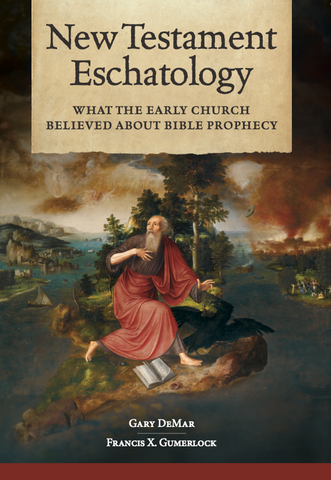Gary responds to a recent article by Ken Gentry that called Gary out for his views on eschatology.
The Nicene Creed and its anonymous cousin, the Apostles’ Creed, have been standards of orthodoxy for around 1700 years. A charge made by some Christians who ask questions about the creeds is that the creeds use “man’s language,” thus invalidating their authority. This is a harsh and mistaken claim since most of the statements in both creeds are taken directly from verses in the Bible, thus, they are God’s language for the most part: From God as the Creator of heaven and earth (Gen. 1:1) and one Lord Jesus Christ (1 Cor. 8:6) to Jesus being born of the Virgin Mary (Luke 1:27), having suffered under Pontius Pilate (John 18:24-40), and that He will come again, with glory, to judge both the living and the dead (Matt. 16:27-28; 25:31). These creedal statements are historical snapshots of events from the Apostolic era using biblical language. What they copied from the Bible must be interpreted by the Bible (Acts 17:11).
All creeds and Christians who recite them are bound by the text of Scripture. If we cannot agree on this basic point, then we cannot agree on much else. Yes, the creeds have consistency and history on their side. This is not in dispute. I believe Jesus came to judge the living and the dead, not because the creeds say it, but because the Bible says it. The creeds and the Bible should not be in conflict. The Bible is to govern the meaning of every word of the creeds. Jesus coming to judge the living and the dead was future for that Apostolic generation as the Bible makes clear. Like dispensationalists who appeal to the Old Testament to support their views by skipping over the fulfillment of prophetic passages either in the return of Israel from the exile and/or the New Covenant, those reading the creeds skip over the coming of Jesus that took place before “this [their] generation” passed away (Matt. 24:34).

New Testament Eschatology
It has been maintained by some modern writers that the early church was predominately premillennial and exclusively futuristic on Bible prophecy. While these claims have been made with certainty, there has always been a lack of clear historical documentation to support them. But since the futurist perspective has been promoted as an early church reality by so many for so long, few question it. New Testament Eschatology challenges this prevailing futurist view with a careful study of the historical record. The evidence shows that many early church writers understood the destruction of Jerusalem in AD 70 to be the end of the Old Covenant world.
Buy NowGary responds to a recent article by Ken Gentry that called Gary out for his views on eschatology. Gary’s point has consistently been that a real exchange needs to happen between different views regarding certain elements of Bible prophecy that some (like Ken Gentry) insist have been “settled.” The same hermeneutic that informs partial preterism is being used by others to defend consistent, or full, preterism.

